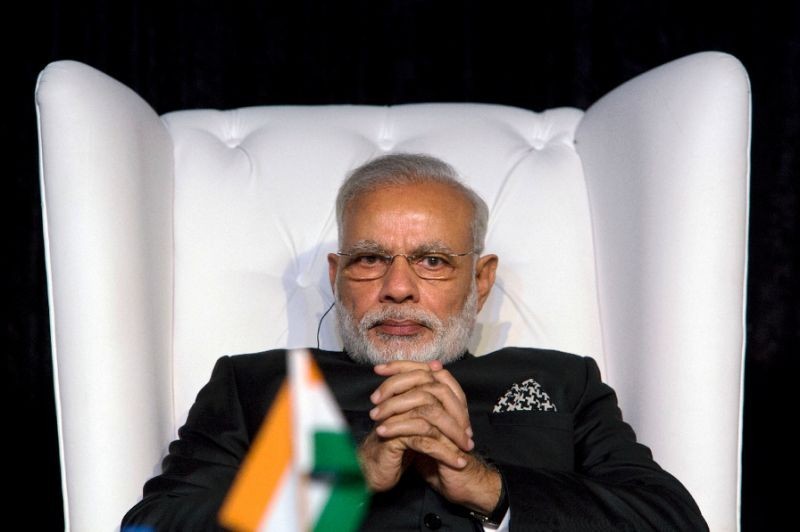
Prime Minister Narendra Modi on Sunday sought increased economic links and integration among the Shanghai Cooperation Organisation (SCO) security bloc but also underlined the need for a respect for sovereignty and transparency in connectivity projects among the members of the grouping.
In his speech, Modi also described Afghanistan as an “unfortunate example” of the effects of terrorism and extremism as the eight-member grouping later sat down to sign cooperation pacts aimed at thwarting extremism, separatism and terrorism.
The two remarks can be seen as an articulation of India’s concerns vis-a-vis China and Pakistan though Modi did not mention either country by name. India has objected to a section of China’s ambitious Belt and Road Initiative running through disputed Kashmir. And New Delhi believes that Pakistan supports anti-India terrorist groups on its soil. India and China have recently taken steps to reset ties after a 73-day tense military standoff last year.
Pointing out that connectivity was key to economic development of the region, Modi said “connectivity with our neighbourhood and in the SCO region is our priority.” “India welcomes any such (connectivity) project which is inclusive, sustainable and transparent, and which respects member states’ sovereignty and territorial integrity,” the Prime Minister said citing New Delhi’s involvement in projects linking India and Central Asia through the Iranian port of Chabahar and the International North-South Transport Corridor that links India to Central Asia and Russia.
Modi also outlined his vision for a “secure” region where he said “S” stood for security for citizens, “E” for economic development, “C” for connectivity in the region, “U” for unity, “R” for respect of sovereignty and integrity and “E” for environment protection.
On terrorism, Modi said Afghanistan was an “unfortunate example” of its effect. “I hope the bold steps towards peace taken by President Ghani will be respected by all in the region,” he said, referring to a ceasefire offer made by the Afghan leader on the occasion of Eid. Over the weekend, the insurgent Taliban group —believed to be backed by Pakistan—too announced a ceasefire, raising hopes for possible peace talks between the two sides.
The Qingdao SCO Declaration included many paragraphs on terrorism with all members “strongly” condemning “all forms of terrorism” and supporting “reaching consensus on the issue of adopting the UN Comprehensive Convention on International Terrorism (CCIT) based on the UN Charter and other documents.” First proposed by India in 1996, the CCIT is yet to get support from UN member states given the differences over the definition of terrorism.
It also emphasizes “the importance of comprehensive measures to reach a peaceful settlement of international and regional conflicts, enhance efforts against terrorism and its ideology, the detection and elimination of factors and conditions that facilitate terrorism and extremism, acknowledging that there can be no justification of any act of terrorism or extremism.”
“The Member States note that the interference in the domestic affairs of other states under the pretence of combating terrorism and extremism is unacceptable, as well as the use of terrorist, extremist and radical groups for one’s own purposes,” it said.
In his address, Chinese President Xi announced loans worth $4.7 billion for common SCO projects. Xi said China rejected “selfish, shortsighted” trade policies, and called for building an open global economy, against the backdrop of a bitter tussle with the US over a yawning trade deficit. Xi did not mention the US by name in his speech but said that China upheld “World Trade Organization rules, support a multi-lateral trade system, and building an open world economy.”
The SCO currently has eight members—representing more than 40% of the world’s population and 20% of global GDP. The bloc was founded at a summit in Shanghai in 2001 by the presidents of Russia, China, Kyrgyz Republic, Kazakhstan, Tajikistan and Uzbekistan.


.jpeg)

